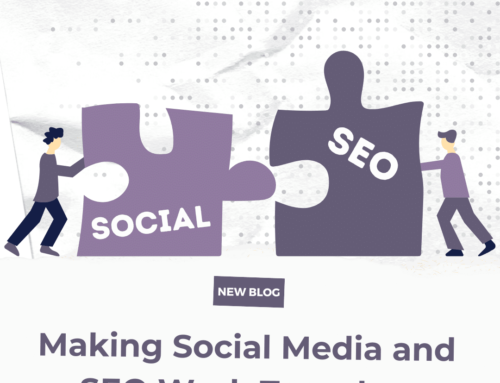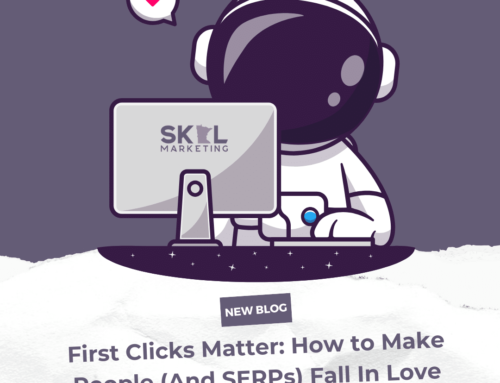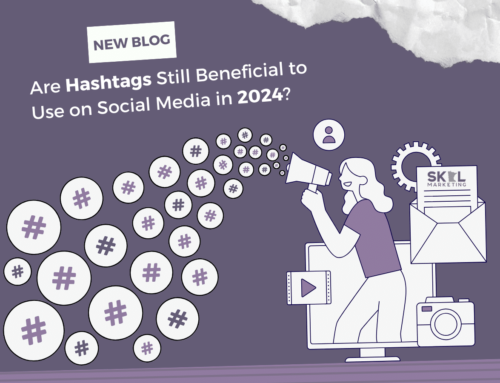Search Engine Marketing (SEM) is a term that maybe not everyone is always aware of, but it’s a marketing opportunity that can pay off in big ways for a smart business. Basically, SEM is an umbrella term for any marketing strategy you use that involves paying to advertise your business using search engines–that could mean “Pay-Per-Click” (PPC) ads at the top of a Google search engine results page (SERP), it could mean paying for advertisements on YouTube or other video sites, it could mean paying for display ads, or much more.
Maybe you’ve been running an SEM campaign or strategy and are looking to improve your SEM performance in 2022. If so, you’re on top of the ball already and we hope this can help you discover smart ways to ensure that you’re getting the most out of your paid advertisements this year. If you haven’t developed an SEM strategy yet, that’s fine–welcome to a wide world of open possibilities, and you can learn a lot by reading on.
Track Your PPC Performance
Ideally, any business engaged in SEM should religiously track data and ad performance, but we understand this isn’t always the case. With a million things on your plate running a growing business, it’s easy to forget to check in on the performance of your ads, and we don’t blame you–but we do want to say that in doing so, you could be losing money or potential business.
Just like a smart restaurateur is always aware of food prices, which menu items are most popular, labor costs, etc, tracking ad data trends can give you a wealth of insight into how effectively your money is being spent. You always want to be paying attention to which ads are performing well vs which are underperforming, how the ad performance changes over time, what the similarities are between all your high- or low-performing ads, etc) because by doing so, you get a sense of what you may need to update to get your results to where you want them to be.
Update Your Google Ads Strategy
The Google Search platform is constantly changing, with big algorithmic updates and new tech rolling out. These tech platforms are moving at the speed of light, and if it’s been even a year since you audited your paid digital ad strategy, it’s likely out of date already. Here are a few things to consider when you’re updating your PPC advertising strategy to make sure you’re getting the best results possible:
- Do your keyword research (again). One of the first steps in creating a successful SEM strategy is doing keyword research. This means finding which keywords are most likely to be searched by your target audience, which keywords have the best potential ROI for your business, and which keywords are the most affordable to target. Focusing on the right keywords is hugely important whether you’re trying to improve your SEM or your SEO results, so take some time and ensure that the ones you’re using are still right for your ad strategy.
- Make sure your ad creative is up-to-date. For many creative-minded people, getting the copy and (when applicable) images right on an ad is the fun part. And for the more left-brained folks, we know that great ad creative is as much a science as it is an art–it’s amazing how much more effective a simple change in wording can be. If your performance research from above shows your ads haven’t been running as well lately, consider the possibility that you need to update your creative to be more relevant and better performing.
- Adjust your audience if your business has changed. Just like with checking your keywords, you also want to make sure that the audience you’re targeting with your PPC advertisements is useful and relevant to where your business currently is. If you’ve expanded to multiple locations, for example, you may want to increase the geographical area you’re targeting. Or if you’ve noticed a younger client base but your ads are still exclusively targeting older people, the age demographic may be worth updating. The audience for your business is constantly changing and updating, and your ad targeting needs to also!
Integrate SEM and SEO
If you’ve ever tried to improve your business by getting more leads from Google and other search engines, you’ve probably come across a million articles with headlines like “SEO vs SEM” or “Is SEO Better Than SEM?” or some other variation. As a refresher, SEM is what we’ve been discussing above–paying to run ads in search engines to boost your website to the top of search query results for particular keywords and particular audiences. SEO is how we improve “organic” search results, or how our websites are ranked naturally in search query results with no paid push behind them.
Far too often, small business owners are confronted with what seems like a mutually exclusive choice about where they put their internet marketing time, energy, and money, deciding whether to pay someone to improve their SEO or pay Google to run their ads. The truth is, not only are these strategies not mutually exclusive, but they can support each other as well, with great SEO being especially important for strong SEM results.
Think of it this way: Google wants to reward websites that make for a pain-free, useful, and relevant search experience for their users, and ranks websites accordingly. Therefore, most of the SEO improvements you make to your website will help convert clicks on your paid ads into actual leads–obviously, Search users are way less likely to bounce back (leave) websites that load quickly, provide answers to their questions, or problems, and are attractive and inviting. Good SEO simply helps your SEM, with no questions about it.
Are you looking to refine your SEM campaigns in 2022? Or looking to take your first tentative steps into PPC advertising? Or maybe you just want some help getting your SEO up to snuff so that those ads see better results? Whether you’re an SEM veteran that just needs a little help, or a newbie looking for experienced guidance to help your business grow, Skol Marketing’s team is here to help. For one-on-one guidance or to discuss how we can help your company find your audience on Google, please don’t hesitate to contact the local SEM experts at Skol Marketing.





